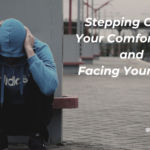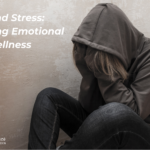Resilience is your ability to bounce back from difficult situations. Imagine that a tree has been battered by the storms and rain and has bent over, but there is a twig that has grown straight and tall. It’s your ability not to crack but to let yourself be flexible and come back to the centre when life throws challenges at you. What is the relationship between emotional resilience and stress is the topic we are going to discuss here.
According to psychologists, resilient individuals can handle hardship and rebuild their lives without falling apart. Everyone experiences setbacks at some point in their life. Some of these setbacks are minor, while others are much more devastating. Resilient people can use their strengths and skills to recover from any setbacks.
Resilience Meaning
So, what is resilience? Here’s a simple emotional resilience definition. You can deal with setbacks and challenges by bouncing back from them. These setbacks may include natural disasters, job loss, divorce, financial problems, medical emergencies and many more. Instead of using unhealthy coping mechanisms or falling into despair, resilient individuals face problems head-on by handling setbacks in ways that cultivate growth and strength.
Those who don’t possess this resilience may get depressed, and anxious and become overwhelmed by such problems. Failure or frustration may cause them to develop unhealthy, dangerous, or destructive behaviours. People who lack resilience may experience psychological and emotional distress because they cannot deal with the challenges they face.
How Does Mental Health affect emotional Resilience and stress?
There is a unique relationship between emotional resilience and stress. Having emotional resilience does not mean your life will be stress-free. However, resilient people understand that setbacks can happen at any time. Remember the saying ‘life isn’t always rainbows and butterflies.’ They still feel pain and grief, but being resilient gives them the strength to face problems head-on. Resilience allows them to overcome adversity, survive and prosper. If you want to become more resilient, follow these tips:
- Watch a funny movie or do a laughter class at least once a week. Recent research suggests that people live 10-12 years longer if they laugh, which brings down cortisol & laughing for 5 minutes, burns calories reduces stress instantaneously
- You generally have a habit of finding the positives in a potentially negative situation – diamonds in the dust – Use cognitive reframing to respond to things differently, more positively
- Talk to a friend who you can trust. A recent study indicated that social interaction had a high correlation to a person’s well-being & happiness. Build positive relationships with your family and friends so that you can get the support you need in bad and good times. You can also join and become a volunteer to build other meaningful relationships.
- Learn from your experiences. Consider the strategies and skills that helped you overcome adversity in the past. Make time to do at least 20-min of quiet prayer/ contemplation /reflection/journaling /meditation at least three times per week. You can also record your past experiences and decisions in a journal to determine negative and positive behaviour patterns. This information will help guide your future behaviours and decisions.
- You have to make sure that you have ‘Me time’ for at least 2 hours every week. Don’t forget to take good care of yourself. Make sure that you’re getting enough sleep and exercise. You can practice relaxation and stress management techniques like meditation, deep breathing, mindfulness, guided imagery, and yoga to develop resilience at work and in life.
Remember that highly resilient individuals face their problems head-on. So, if you’re going through a hard time right now, don’t run away from it. Instead, determine the leading cause of the problem and create a plan on how you’re going to solve it. It’s not easy to recover from a traumatic event or significant setback, but your situation will improve only if you take action. But if you think that you are not making progress, consider seeking professional help. It’s not a sign of weakness.
Seeking help means that you’re ready to face your problem and start anew. Get in touch now, so your relationship between emotional resilience and stress gets easier.
Remember that highly resilient individuals face their problems head-on. So, if you’re going through a hard time right now, don’t run away from it. Instead, determine the leading cause of the problem and create a plan on how you’re going to solve it. It’s not easy to recover from a traumatic event or significant setback, but your situation will improve only if you take action. But if you think that you are not making progress, consider seeking professional help. It’s not a sign of weakness.
Seeking help means that you’re ready to face your problem and start anew. Get in touch now, so your relationship between emotional resilience and stress gets easier: hello@andreaasmith.com
Read “Fear Less Live More” my first book, it’s a simple-to-use book that will help you with any challenges you may face. For a free consultation or chat about the challenges you’re facing, contact me to see whether Emotional resilience and stress coaching could help you focus on what’s important. Call 07967 151790 or email hello@andreaasmith.com










